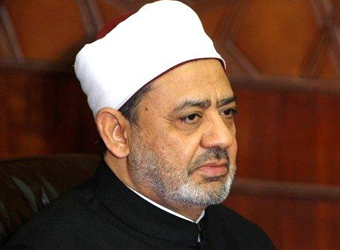Egypt’s Al-Azhar, the world’s highest seat of Sunni Islamic learning, announced Tuesday that it would hold an international conference on Jerusalem in late September to discuss the Palestinian-Israeli issue with relevant institutions and bodies.
Senior Al-Azhar scholars said that the recent actions of Israeli occupation authorities in Jerusalem are are not based on any humanitarian or civilised principles.
Al-Azhar issued the statement after holding a meeting headed by the institution’s Grand Imam Ahmed El-Tayyeb.
Violence escalated over the past few days after Israeli forces closed Al-Aqsa Mosque for two days for the second time since Israel occupied Jerusalem in 1967, installing metal detectors and cameras at entry points to the mosque.
Al-Azhar called on the international community not to remain silent in the face of “the aggressive actions” of Israeli authorities and to liberate the world’s places of worship from political and racist control.
Al-Aqsa Mosque, which is located inside Al-Haram Al-Sharif compound, is considered the third holiest site in Islam.
Six Palestinians were killed by Israeli troops in clashes in east Jerusalem and the West Bank and hundreds were injured after Israeli forces attacked worshippers outside Al-Aqsa following Friday prayers.
On the same day, three Israelis were killed by a Palestinian man.
Early on Tuesday, Israel removed metal detectors from entrances to the Al-Aqsa Mosque in favour of CCTV cameras, though Palestinians have said that the modified security measures are still unacceptable.
The United Nations Security Council held closed-door talks on the violence in a meeting on Monday after Egypt, France and Sweden called for the meeting to “urgently discuss how calls for de-escalation in Jerusalem can be supported.”
On Monday, UN Middle East envoy Nickolay Mladenov warned that the crisis threatens to have potential catastrophic costs well beyond the walls of the Old City.
The Arab League is planning to hold an urgent ministerial meeting on Thursday to discuss the recent Israeli escalations. Source: Ahram online
Source: Ahram online


